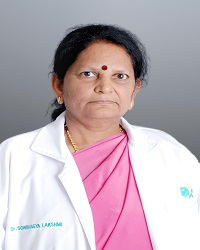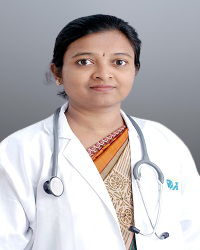Best Doctors for Ectopic pregnancy in Mysore
An ectopic pregnancy is a serious medical condition where the fertilised egg implants and grows outside the main cavity of the uterus, most commonly in the fallopian tube. The ectopic pregnancy, under no circumstances, can progress normally and often results in life-threatening complications such as severe internal bleeding due to the rupture of the fallopian tube. While the exact cause remains unknown, factors like previous ectopic pregnancy, pelvic inflammatory disease (PID), endometriosis, structural abnormalities in the fallopian tubes, prior tubal surgery, use of intrauterine device (IUD) for contraception, and fertility treatments increase the risk.
In Mysore, ectopic pregnancy specialists and surgeons provide comprehensive care to address this condition. The best ectopic pregnancy specialists and surgeons use cutting-edge technology and internationally recognised clinical protocols to ensure optimal outcomes for the patients.









 Call Now
Call Now





